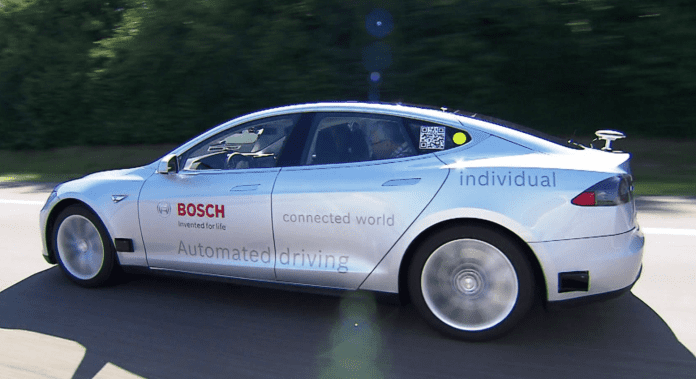The trial took place at the Mercedes-Benz Research and Development Center in Beijing
German companies Daimler and Bosch have announced the completion of a joint, automated valet parking pilot in China’s capital Beijing.
The technology, which had been initially tested in a parking garage at the Mercedes-Benz Museum in Stuttgart in 2017, enables vehicles to proceed to an assigned space and for the user to retrieve the vehicle via their smartphone.
This technology will undergo further testing by Daimler and Bosch at the Mercedes-Benz Research and Development Center in Beijing.
Daimler said automated valet parking has the capacity to ease difficulties involved in the parking process–by automating it.
The automated valet parking process begins when the user parks the vehicle in a designated drop-off area before sending it to be parked using the smartphone app. After being registered by the intelligent system infrastructure installed in the car park, the vehicle is started and guided to an assigned parking space. Sensors installed in the car park monitor the driving corridor and its surroundings while steering the vehicle. The vehicle’s onboard technology safely maneuvers it in response to commands from the intelligent car park infrastructure, stopping the vehicle when necessary. When a user is ready to pick up the vehicle, it can be called through a smartphone app, after which it rolls to the pick-up area without a driver, Daimler said.
“Automated valet parking is an important milestone on the road towards autonomous driving. Through our strong partnership with Bosch, we will adapt this technology to meet local needs. In the process, we will not only convenience vehicle owners, saving them time and energy, but also do our part to help bring automated driving technology to the next level,” said Hans Georg Engel, head of Mercedes-Benz Research and Development China.
During the trial in Beijing, two vehicles were tested simultaneously to mirror the complex traffic conditions found in contemporary Chinese cities. Both vehicles were also able to successfully navigate to a service area that could be equipped with a diverse range of facilities in the future. These might include charging infrastructure, car washing stations, express package pick-up and other features designed to meet the needs of Chinese customers.
In July, Daimler said it had received a road test license for highly automated driving research vehicles (level 4) in Beijing.

